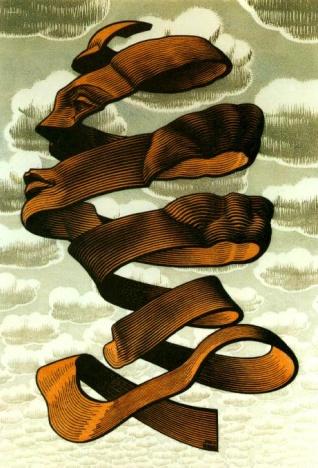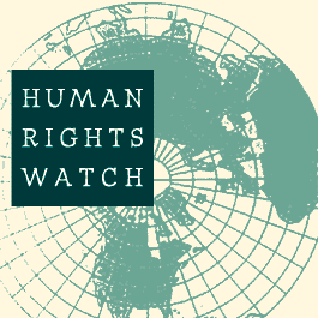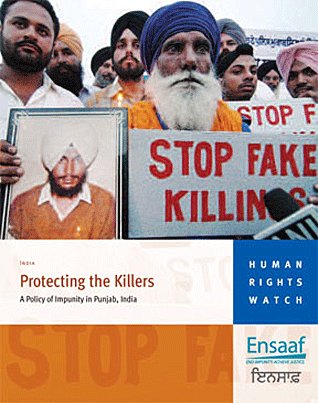History
Protecting The Killers: A New Report
by HUMAN RIGHTS WATCH
EDITOR'S NOTE
This month, twenty-three years have gone by since the anti-Sikh pogroms of 1984, which followed the assassination of Indira Gandhi at the hands of two of her bodyguards (both Sikhs, ostensibly in retaliation for the desecration of the Golden Temple and the destruction of the Akal Takht building in Amritsar, which were carried out by government troops at her behest). Several thousand Sikhs - innocent men, women and children - were murdered in broad daylight by well-prepared gangs in India's capital, New Delhi, and in over forty cities around the country. Thereafter, a campaign of brutality and atrocities ensued, carried out by police and military authorities, specifically targetting the male youth of Punjab, and terrorizing their families and the general populace as a result. To date, the criminals - though identified - continue to work for the police, military and the highest levels of the government (including the ruling party), and/or enjoy impunity. The new report, which is summarized hereinunder, was produced by two prestigious and independent international institutions; it once again spells out in meticulous detail the Indian government's ongoing acts and omissions - tantamount to criminal negligence, at the very least - in delivering justice.
The Indian government must take concrete steps to hold accountable members of its security forces who killed, "disappeared", and tortured thousands of Sikhs during its counterinsurgency campaign in the Punjab, Human Rights Watch and Ensaaf said in a new report released on October 18, 2007.
In order to end the institutional defects that foster impunity in Punjab and elsewhere in the country, the government should take new legal and practical steps, including the establishment of a commission of inquiry, a special prosecutor's office, and an extensive reparations program.
The 123-page report, Protecting the Killers: A Policy of Immunity in Punjab, India, examines the challenges faced by victims and their relatives in pursuing legal avenues for accountability for the human rights abuses perpetrated during the government's counterinsurgency campaign. The report describes the impunity enjoyed by officials responsible for violations and the near total failure of India's judicial and state institutions, from the National Human Rights Commission to the Central Bureau of Investigation (CBI), to provide justice for victims' families.
Beginning in the 1980s, Sikh separatists in Punjab committed serious human rights abuses, including the massacre of civilians, attacks upon Hindu minorities in the state, and indiscriminate bomb attacks in crowded places. In its counterinsurgency operations in Punjab from 1984 to 1995, Indian security forces committed serious human rights abuses against tens of thousands of Sikhs. None of the key architects of this counterinsurgency strategy who bear substantial responsibility for these atrocities have been brought to justice.
"Impunity in India has been rampant in Punjab, where security forces committed large-scale human rights violations without any accountability", said Brad Adams, Asia director at Human Rights Watch. "No one disputes that the militants were guilty of numerous human rights abuses, but the government should have acted within the law, instead of sanctioning the killing, ‘disappearance', and torture of individuals accused of supporting the militants".
A key item discussed in detail in the report is the Punjab "mass cremations case", in which the security services are implicated in thousands of killings and secret cremations throughout Punjab to hide the evidence of wrongdoing. The case is currently before the National Human Rights Commission, a body specially empowered by the Supreme Court to address it. However, the commission has narrowed its efforts to merely establishing the identity of the individuals who were secretly cremated in three crematoria in just one district of Punjab. It has rejected cases from other districts and has ignored the intentional violations of human rights perpetrated by India's security forces. For more than a decade, the commission has failed to independently investigate a single case and explicitly refuses to identify any responsible officials.
"The National Human Rights Commission has inexplicably failed in its duties to investigate and establish exactly what happened in Punjab", said Adams. "We still hold out hope that it will change course and bring justice to victims and their families".
The report discusses the case of Jaswant Singh Khalra, a leading human rights defender in Punjab who was abducted and then murdered in October 1995 by government officials, after being held in illegal detention for almost two months. Despite credible eyewitness testimony that police chief K.P.S. Gill was directly involved in interrogating Khalra in illegal detention just days prior to Khalra's murder, the Central Bureau of Investigation has thus far refused to investigate or prosecute Gill. In September 2006, Khalra's widow, Paramjit Kaur, filed a petition in the Punjab & Haryana High Court, calling on the CBI to take action against Gill. More than a year later, she is still waiting for a hearing on the merits.
"Delivering justice in Punjab could set precedents throughout India for the redress of mass state crimes and superior responsibility", said Jaskaran Kaur, co-director of Ensaaf. "Indians and the rest of the world are watching to see if the current Indian government can muster the political will to do the right thing. It if fails, then the only conclusion that can be reached is that the state's institutions cannot or will not take on the security establishment. This has grave implications for Indian democracy".
Victims and their families seeking justice face severe challenges, including prolonged trials, biased prosecutors, an unresponsive judiciary, police intimidation and harassment of witnesses, and the failure to charge senior government officials despite evidence of their role in the abuses.
Tarlochan Singh described the hurdles he has faced in his now 18-year struggle before Indian courts for justice for the killing of his son, Kulwinder Singh:
"I used to receive threatening phone calls. The caller would say that they had killed thousands of boys and thrown them into canals, and they would also do that to Kulwinder Singh's wife, kid, or me and my wife...
"The trial has been proceeding ... with very little evidence being recorded at each hearing, and with two to three months between hearings. During this time, key witnesses have died".
After Mohinder Singh's son Jugraj Singh, was killed in an alleged faked armed encounter between security forces and separatists in January 1995, he pursued numerous avenues of justice. He brought his case before the Punjab & Haryana High Court and the CBI Special Court, but no police officer was charged. A CBI investigation found that Jugraj Singh had been killed and cremated by the police. However, eleven years and a few inquiry reports later, the CBI court ended Mohinder Singh's pursuit for accountability by dismissing his case in 2006. Mohinder Singh describes his interactions with the CBI:
"On one occasion when [the officer] from the CBI came to my house, he told me that I wasn't going to get anything out of this. Not justice and not even compensation. He further said that: ‘I see you running around pursuing your case. But you shouldn't get into a confrontation with the police. You have to live here and they can pick you up at any time'. He was indirectly threatening me".
Human Rights Watch and Ensaaf expressed concern that the Indian government continues to cite the counterinsurgency operations in Punjab as a model for preserving national integrity.
"The government's illegal and inhuman policies in the name of security have allowed a culture of impunity to prevail that has brutalized its police and security forces", said Kaur.
The report suggests a comprehensive framework to address the institutionalized impunity that has prevented accountability in Punjab. The detailed recommendations include establishing a commission of inquiry, a special prosecutor's office, and an extensive reparations program.
"The Indian government needs to send a clear message to its security services, courts, prosecutors, and civil servants that it neither tolerates nor condones gross human rights violations under any circumstances", said Adams. "This requires a comprehensive and credible process of accountability that delivers truth, justice, and reparations to its victims, who demand nothing more than their rights guaranteed by India's constitution and international law".
For complete report and to watch video and slide show, go to http://hrw.org/english/docs/2007/10/18/india17103.htm .
Conversation about this article
1: Tejwant (U.S.A.), October 18, 2007, 8:47 PM.
US congress is trying to pass a bill declaring the massacre of the Armenians by the Ottoman empire as genocide. It will eventually pass, if not this time around due to the war in Iraq. We Sikhs should use our political clout or cultivate one to help Congress declare the ruthless murders of Sikhs in 1984 as genocide as well, which it truly was. And this happened recently, not 90 years ago, as the Armenian situation did. If we succeed in this, then the Indian government will be pressured to do its job.
2: Kuljeet Singh (Boston, U.S.A.), October 21, 2007, 3:20 PM.
I am truly inspired by the tireless efforts of human rights workers to document the Sikh Genocide; however does anyone think Sikhs will actually get justice in India? Reports will simply be buried in paperwork and eventually destroyed by the crushing wheels of a corrupt government operating under the guise of a democracy. If reports are ever to resurface in the distant future, those guilty of these sickening crimes against humanity will long be dead. Is the discussion of a democratic, secular state where Sikh rights are guaranteed amongst diaspora Sikhs now taboo? Since when did the right to self-determination become something that we should be ashamed of? Should Sikhs even be looking for reparations from this disgusting government? Is their money worth the lives that were so utterly destroyed by such barbaric means?
3: Ajaib Singh (Albuquerque, New Mexico, U.S.A.), October 21, 2007, 9:22 PM.
All praise to the authors of these reports and to Human Rights Watch for their unceasing pursuit of truth and justice. Kuljeet Singh, how will a Sikh state guarantee Sikh rights in the diaspora? Sikh rights are guaranteed in the U.K., U.S.A. and Canada because they really are secular liberal democracies. I always find the contention that there should be a Sikh nation state in order to serve the diaspora to be an incredibly inverted and selfish type of logic, founded more in the assimilation / integration anxiety of individual Sikhs in the diaspora than anything else.
4: Kuljeet Singh (Boston, U.S.A.), October 22, 2007, 1:42 AM.
Ajaib Singh ji, I think you may have misunderstood me. A Sikh state will serve no particular purpose for the diaspora (that is, those living outside India). I was simply saying that any discussion of it now seems to be taboo, and that in itself concerns me. I feel diaspora Sikhs have nothing to personally gain from the formation of a separate Sikh state. As a fully assimilated American Sikh (born and raised here), I know that when a hate crime occurs, justice will swiftly be served. My government proves to me, time and time again, that it is fair and just (keeping in mind we are discussing domestic policies). I have full faith in the American system and am proud to be a part of it. However, after 23 years, there is no justice for families living in the "democracy" of India. My point was that when the gears of justice are so rusted with corruption, be it in India, Burma or Sudan, etc., it is the duty of those living outside the oppressive regimes to speak up and push for the proper solutions. Call it my American idealism, but I feel all humans have the birth-right to enjoy life, liberty and the pursuit of happiness. In my examination of the Indian Constitution, Indian domestic policy and contemporary Indian history, I'm not convinced that these fundamental rights are adequately guaranteed for any minority groups in that land. Let's not veer too far from the scope of this article. I think we can agree that Ensaaf and HRW are true protectors of humanity.
5: Ajaib Singh (Albuquerque, New Mexico, U.S.A.), October 22, 2007, 8:45 AM.
Kuljeet Singh, the history of advocating the 'independent Sikh state' is so freighted in the diaspora with extremism, fundamentalism, communalism and hatred, that it is weighed down by an incredible naievety which almost leaves you breathless. It is not for people in the diaspora to interfere in the lives of the people of Punjab to such an extent as fanning flames of discord to advocate a politics that is divisive and if ever realised would result in another partition. It is the ultimate arrogance to do this. The last thing the world needs, looking at the mess that is Iran and Pakistan is another religious state, and in the context of present times, another bloody religious war. And claiming that Khalistan would be a 'democratic' and 'secular' nation is just naive beyond belief, given the mangled nature of our 'leadership', the fervent religiosity of religious politicians, the corrupt and medieval mindset of those who would dance to that tune; the last thing we need to inject into our body politic is the empowerment of those old men of theocracy. People should concentrate when they can on supporting the prosecution of those involved in Human Rights abuses in Punjab and supporting Human Rights Watch and other such organisations, as well as making serious steps to campaign against some of the obscenities that flourish inside Indian Punjab, the self inflicted wounds of our society that is holding Sikhs back (gender inequality, caste oppression, drugs, unemployment), concentrating on elevating Punjab into the modern global economy. Sitting thousands of miles away and chest thumping about the 'independent Sikh state' is, I believe, arrogant and ego driven.
6: Jagdeep Singh (London, England), October 22, 2007, 11:03 AM.
Kuljeet Singh, you said that a Sikh state should be advocated so that 'Sikh rights are guaranteed amongst diaspora Sikhs'. This is a direct quotation from you. I don't think Ajaib Singh from New mexico misunderstood what you were saying.
7: Kuljeet Singh (Boston, U.S.A.), October 24, 2007, 10:10 AM.
Here is my quote: "Is the discussion of a democratic, secular state where Sikh rights are guaranteed amongst diaspora Sikhs now taboo?" My grammar was probably way off. My intent was to say that the discussion itself amongst diaspora Sikhs seems taboo. Not that diaspora Sikh rights will somehow be affected. This should have been clarified in my second post.






